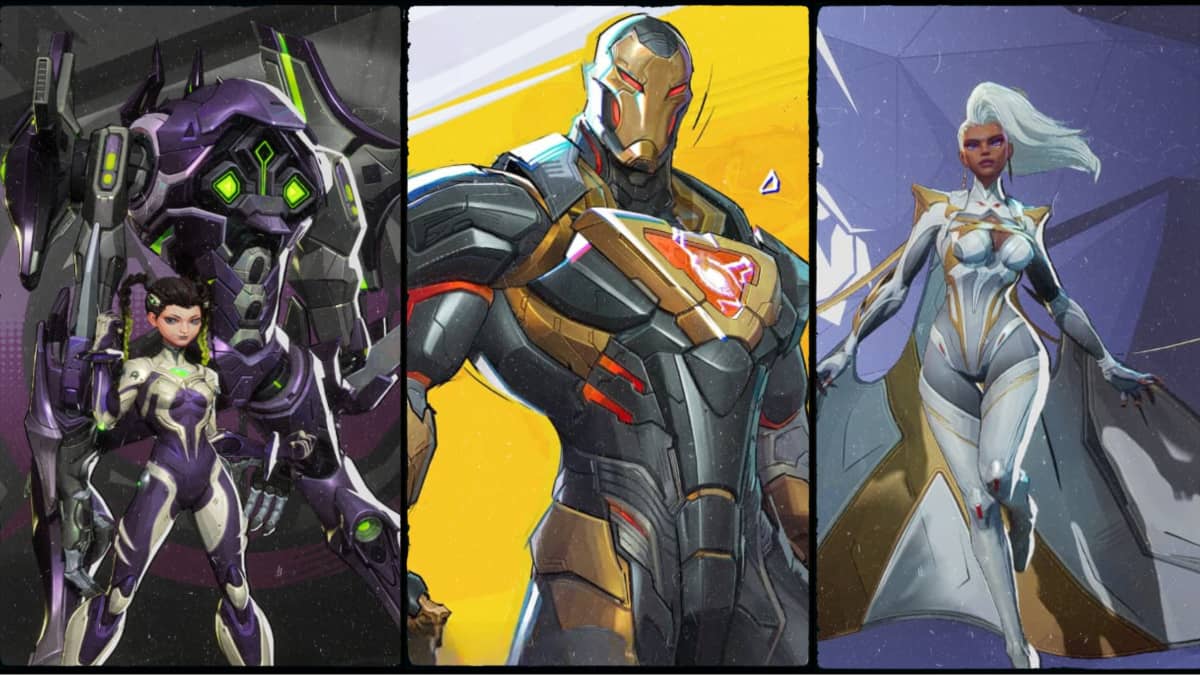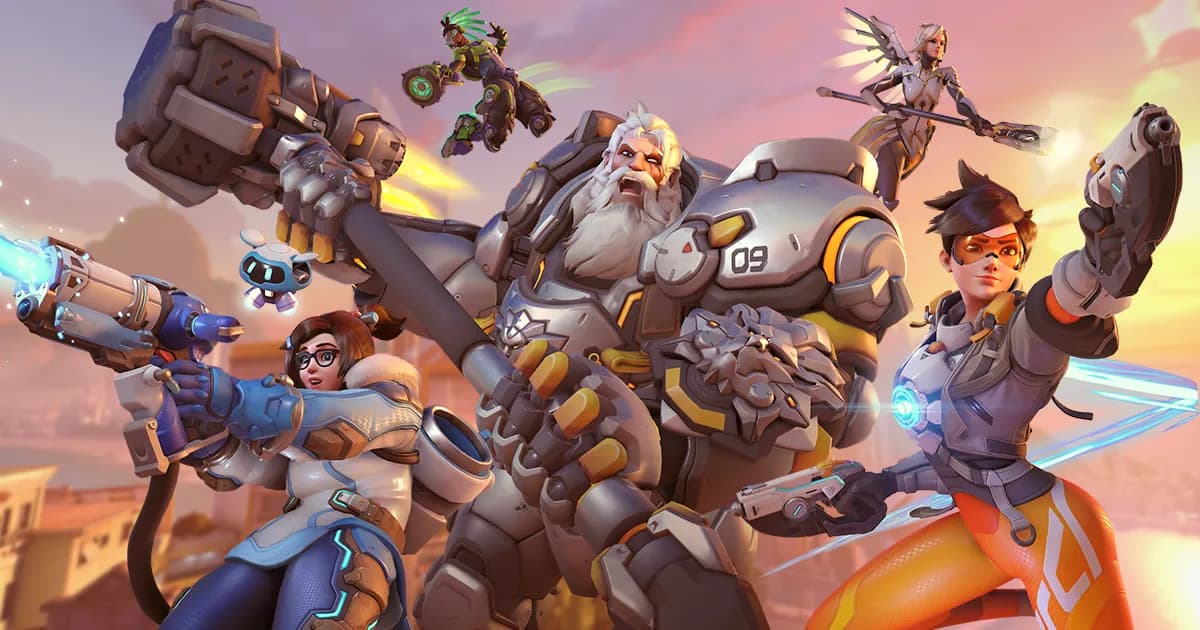This article was written by @RyanRyanLuWei and originally posted on 15w.com as a part of a series.
Five years ago, the first competitive season of the team-based MOBA game, League of Legends, began. Today, professional League of Legends has spread all across the globe, with popular competitive leagues in China, Korea, Taiwan and Hong Kong, Europe, and North America.
Once a competitive team-based game has its own championships, professional coaches will naturally appear just like in traditional sports. In Season 4, after adding Korean players Insec and Zero to their roster, Star Horn Royal Club also invited a Korean coach to work together with their Chinese coach, Chris. In the end, they helped Star Horn Royal Club once again reach the World Championship finals and make history.

Coaches have become an integral part of any LOL team hoping to win a championship.
Although in Season 5 talented Korean players flooded the LPL, the coaching staff acquisitions were equally as star-studded. Former Samsung White coach Homme, Season 3 world champion Poohmandu, and legendary Korean support Mafa all appeared on the LPL stage. In additional, many LPL teams no longer had just one coach, but an entire team of them. But in this kind of competitive game, what role do the coaches actually play? Are coaches really just as Internet commenters once said, ‘only responsible for ordering takeout’? And in the Western and Korean regions, what are the coaches for major teams like?
NBA Coaching Staff vs. LOL Coaching Staff
Of all the traditional sports, basketball is most like LOL – each team is composed of five players with different roles who have to work together to win. Thus, we should look at how an NBA team’s coaching staff is structured.
| NBA: Head Coach: In charge of overall planning Offensive Coach: In charge of offensive planning Defensive Coach: In charge of defensive planning Skills Coach: In charge of skills training Free Throw Coach: In charge of free throw practice Mental Health Coach: In charge of the team’s mental health | LOL: Head Coach: In charge of overall planning, team attitude, and primary strategies Life Coach: In charge of instructing players on how to be a well-rounded professional player Mental Health Coach: In charge of players’ mental health and stress relief Technical Coach: In charge of helping players with their mechanics |
Comparison of NBA coaching staff and LOL coaching staff. (original infographic)
“Normally, a top-tier LOL team’s coaching staff should be structured this way: one head coach, three assistant coaches. The three assistant coaches would be a life coach, a mental health coach, and a technical coach. The technical coach would ideally be a retired support player; the life coach needs to be a retired player with lots of professional experience; and the mental health coach needs to have professional experience and a good understanding of the human psyche,” said Qijing, former analyst for WE.A and King, and current head coach for Lion. “As far as I know, no team in China has this kind of extensive coaching staff yet, while in Korea, big teams like CJ, KT, and SKT are structured this way.”
Like the NBA, LOL teams subdivide responsibilities between multiple coaches. But unlike the NBA, LOL has a fairly short competitive history, so even in Korea, the coaches are often not 100% effective at their roles. “The position of coach is a new one in competitive LOL – we’re all still trying to figure out how to do the job better,” said LGD’s coach and former professional player BSYY.
It’s Not Simple
EDG’s coach Aaron could be called China’s first true LOL coach. He has already led teams to win two international tournaments – IPL5 in 2012 with WE and MSI in 2015 with EDG. “After WE won IPL5, some Chinese teams, including WE themselves, started to understand the importance of coaching,” Aaron said.
Aaron no longer has to fight alone; EDG recently added veteran Korean toplaner Reapered as a member of their coaching staff. “Right now in LPL many of the teams, including EDG, have a mix of Chinese and Korean players. For one person to coach this kind of team is a difficult task, because many problems can’t be solved just through communication. The organization feels this is a normal result of the language barrier problem.” EDG’s main purpose in acquiring a Korean coach is to help the Chinese and Korean players meld into a mature, cohesive team. “Furthermore, Reapered also serves as the head coach for our B team, so he can not only help me with my responsibilities, but also help develop new talent. Because he is a very innovative person, the organization can also test out the strategies he comes up with on the B team and if they’re successful, adapt them for our main team.”

Former Korean veteran toplaner Reapered (blue shirt) has become a member of EDG’s staff.
At the moment, EDG has a three-man coaching team, but in the future, they hope to acquire more talent and improve their team. “The organization plans to hire a dedicated analyst to collect statistics on every LPL team and help EDG come up with better strategies,” Aaron said. “This way, our tactics will be more complete.”
The analyst Aaron mentioned is a vital part of any coaching staff. “An analyst is responsible for gathering data on each player’s solo queue habits and calculating the likelihood of each champion appearing in competitive play. We’re also responsible for giving the coaches a list of the champions the players have practiced and feel sufficiently confident on. Then we give the coach options and suggestions specific to the enemy team, and also work with the coaches to refine the strategy they decide upon,” Qijing said, recalling his experience as an analyst. However, in-depth research on their opponents can prove difficult. “It’s hard to find complete information on our opponents’ solo queue experiences, because players change their ID’s so often. It’s easy to find players who stream, but hard to find those who don’t.”
This only goes to show that the job of a team’s coaching staff is quite complicated: they have to analyze data, communicate with the players and organization, research their opponents, and plan picks and bans. Finally, only after the head coach collects and sorts through all of these things do we, as the audience, see any of it in action.
However, whether a team is more suited for a single coach or a coaching team really depends on their specific circumstances. “At the moment I’m the only coach for LGD,” BSYY said. “Whether a team needs multiple coaches really depends on the style of the team. Of course having another person giving advice isn’t a bad thing, but the key is whether the team recognizes and is willing to listen to that person. ”
Which One’s a Better Coach: A Retired Player or Someone with No Professional Experience?
There are two types of LOL coaches in the world: retired players, such as LGD’s coach BSYY and VG’s coach Homme, and amateur players with a deep understanding of the game, such as EDG’s Aaron. Of the two: which is better, and what are the differences?
“A retired player may have an extremely deep understanding of a specific role and good instincts about the game, but their judgement may not be objective enough and their macro awareness may not be as good. However, they have one very obvious advantage – they really understand how players’ attitudes change on-stage, and that experience has visible effects on the players, ” Aaron said.

VG’s coach Homme (light blue polo) spectates the game.
BSYY was formerly the jungler for the LPL team Spider and is now the coach for LGD. During Season 4, LGD almost qualified for Worlds, and in the Season 5 spring split, they took the champions, EDG, to the last match of a best of five. But from Season 4 to Season 5, LGD has visibly grown as a team under the leadership of player-turned-coach BSYY. “Former players integrate very quickly into teams as coaches,” BSYY said. “For example, a mechanically skilled coach can help a player in their lane matchups and teach them how to best use their abilities. A coach with good macro awareness can help analyze weaknesses in a game. A player with previous competitive experience will have a better understanding of these things and also more clout with the players. They can not only quickly adapt to and work with the team, but also easily understand the player’s mindset – I feel this is very important. As for their disadvantages, it really depends on whether they’re responsible. I feel like a player-turned-coach has only advantages.”

BSYY directs picks and bans on stage.
In the end, there are examples of both successful regular coaches and successful player-turned-coaches. The key is the chemistry between the team and the coach. “I feel like the hardest part of coaching is finding the right attitude for interacting with the players,” Aaron explained. “I tend to respect the players’ decisions, so we’ll usually let them play what they want to play. Sometimes if I can’t convince them otherwise, I’ll let them try out what they want because I’d rather they have that experience and grow through their mistakes.” Aaron added, “As a coach I can tell players to shut up but I can’t force them to communicate. In my opinion, this is the greatest challenge for a coach.”
Are Korean Coaches Really Only Gold?
It’s generally accepted that Korea is a competitive gaming powerhouse. Even around 2001, Korean already had specialized gaming coaches. “I always felt that coaching naturally followed from Korea’s natural dominance in gaming,” Mike, a well-known Korean gaming journalist from INVEN told me. But it turns out that many of Korea’s coaches are not actually that good at the game. “Of course Korea has many extremely talented coaches, like SKT’s coach kkOma or now-VG’s coach Homme and the Huya Tigers’ coach. They have a great understanding of tactics and the players. But Korea also has a lot of coaches with average skill – I’d guess they’d only be Silver or Gold.”

SKT’s coach kkOma is an exceptional Korean coach.
Hearing this, I was taken aback: if many Korean coaches aren’t that skilled, then how have Korean teams maintained such a high level of play since Season 3? “Most it’s because our Korean players work very hard,” Mike said. “Many people think that because Korea is always coming up with new strategies, our coaches must be extraordinary, but that’s actually not the case. Most of these tricks are found by the players in solo queue. When they discover a good strategy, they’ll tell their coach and a new playstyle will appear.”
In Korea, the players’ self-discipline and professional attitude plays a greater role than their coaches do. “Take Samsung Blue for example: the reason for that team’s constant improvement was Acorn and Heart taking care of the other players like older brothers would and the players always working hard. That’s how they won OGN champions in Season 4 and made it to the semifinals at Worlds.”
LCS: Riot Games Pays Coaches’ Wages
Kelsey Moser is a well-known Western journalist who contributes to Riot Games and other media outlets, and she also follows the LPL. From talking to her, I learned more about the coaching situation in the NA and EU LCS.
“In the West, the position of esports coach is a new one. Not every team has coaching staff. Of course, a top-tier team like TSM has their own coaching team – their head coach Locodoco and two analysts. But a mid-tier team like SK might only have a mental health coach and no analysts.”

TSM Locodoco (polka-dot shirt) and his two assistant analysts. In the West, this is a very extensive coaching staff.
In the LCS, Riot Games pays both the players’ salaries and the coaches’ salaries. As a result, Kelsey explained there might be some “potted plant coaches” who take a salary but don’t produce results. “Some coaches are definitely really hard-working, but as for others, rumor has it they just sit around and wait for their paycheck. Having a dedicated coach is still a new idea in the West, and to put it harshly, I don’t think there’s a truly impressive coach yet.”
Even so, teams with coaching staff still perform comparatively better in the LCS. “Teams like Fnatic, H2K, and C9 might not have analysts, but they still have a head coach. Teams like OG, TL, and TiP have analysts, and of all the LCS teams, TSM can be said to have the most extensive coaching staff.”
The Future of Esports Coaching
In my opinion, there’s still major differences between coaching for esports and for traditional sports. However, esports can serve to learn a lot from traditional sports, in particular about discipline and management. Unlike players in physical sports, esports players spend a lot less time in a disciplined environment (for example, in basketball most who would become professional players might go through ten years of training and living together, so they’re far more disciplined), so trying to teach the players to maintain unity within the team is tough. “I feel like even telling them to go to sleep is a hard task,” EDG’s coach Aaron said.
Furthermore, esports is unlike traditional sports that have had a long time to mature. Every esports coach needs to improve their skills in utilizing and analyzing data.
Finally, the situation in esports is different from that in traditional sports. The patch for esports is constantly changing, so the coach must be able to understand the patch and then teach the players how to best utilize its strengths. Otherwise the “one-patch champions” situation will occur.
To be honest, through my investigation I discovered that even in Korea, coaches aren’t used to their full potential, and in both China and the West, esports coaching is just beginning to develop. In the future, we have a long road to travel as the industry matures. Korea is a country with a long history of competitive gaming, and many retired professionals from other games have joined LOL teams as coaches. They have an extensive amount of competitive experience, so although their LOL skill may only be gold, they can still help the players improve. Perhaps this model of ‘extraordinarily hard-working players and gold coaches,’ however, can only work in Korea. In the rest of the world, more teams require a highly skilled, analytical, high-EQ coach with competitive experience. As LOL continues to expand and develop over the coming years, we hope this kind of coach will keep appearing.





Published: Jul 1, 2015 12:04 am